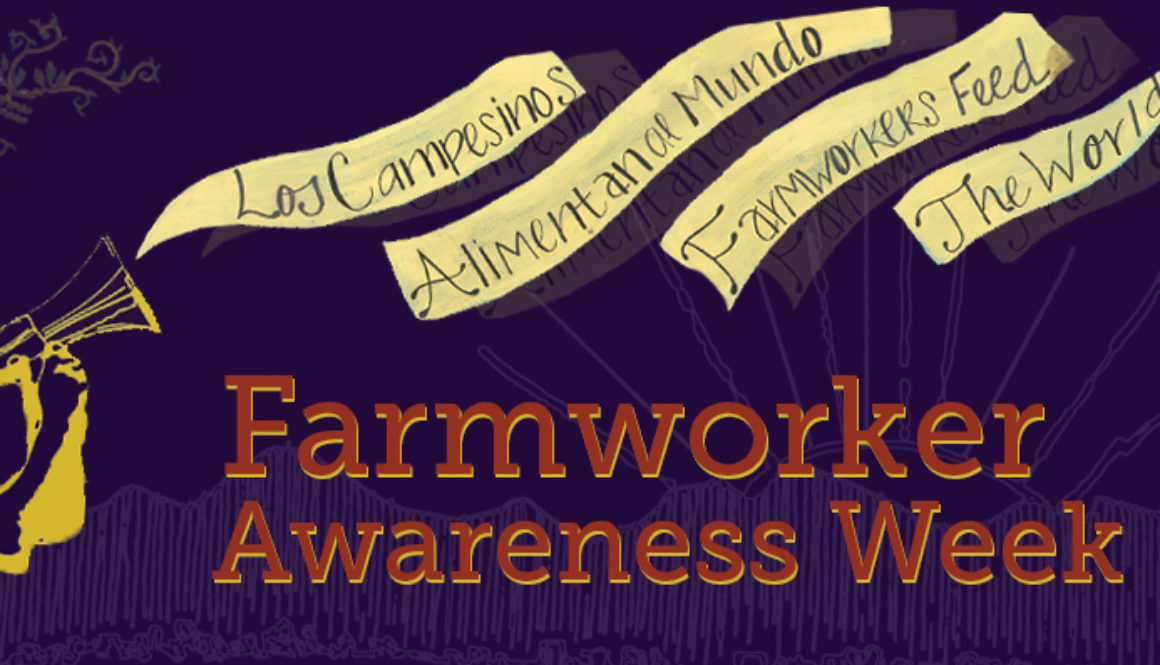
Got Food? Thank a Farmworker!
Celebrate the 17th Annual National Farmworker Awareness Week
Today kicks off National Farmworker Awareness week, which goes from March 24 – March 31! It is an exceptional opportunity to create awareness around issues that farmworkers face everyday, such as pesticide exposure, harsh working conditions, immigration issues, and perpetually low wages. Farmworkers are essential to feeding the world, something many of us take for granted everyday. They are especially crucial to North Carolina’s number one, $78 billon agricultural industry and we have to take this time to take action to support them. If you know a farmworker, past or present, please thank and honor them this week, and throughout the year, for the hard and essential work they do providing fresh food for you and your family’s table.
Farmworkers in Western NC
Farmworkers across the state face different problems based on the crops they work in, the geographic climate, and political climate of that region. Click here to read this wonderful blog written by Toxic Free NC’s intern, Brooke Eichenlaub, on issues facing Western NC farmworkers and what our supporters can do to take action to suppot them and their efforts to increase wages, improve housing conditions, and decrease pesticide exposures.
IPM in Child Care, Southeastern North Carolina
Continuing our outreach campaign to get providers and strategic partners on board with our IPM: Plan and Policy initiative for child care, earlier this month we met with the Region’s Environmental Health Inspectors and leadership at East Coast Migrant Head Start.
The Environmental Health Inspectors, whose responsibilities include biannual inspections of pest control of child care centers, provided some great insight into how we can decrease exposure to pesticides in child care facilities. Mainly, there is not a formalized pesticide record-keeping procedure which leave the inspectors with an unclear picture of what pest management practices are being implemented. We were happy to report that our IPM policy we are moving child care centers to adopt requires and relies on much stronger communication and record-keeping. We let the Environmental Health Inspectors know that they can ask for the pesticide logs at centers that have our IPM certification sticker!
We were also able to present at the Telamon Health Advisory Committee meeting, which included leadership from the Southeastern Migrant Head Starts. With farmworker children especially vulnerable to exposure to pesticides, it is a pleasure to work along side such dedicated individuals who help ensure their health and safety. Thanks again for the invite, and we look forward to seeing you at the next one!
Educating Migrant Education on the revised Worker Protection Standards
Last week, Toxic Free NC was asked to present on the revised WPS at the annual Migrant Education Program Outreach Worker Regional Conferences in Smithfield and Winston Salem alongside other program officials and the NC Department of Health and Human Services. This presentation was crucial in educating outreach workers on the new standards, such as children under 18 not handling, mixing, or applying pesticides, so that they may identify potential violations on outreach trips. We had some great conversations concerning what outreach workers can do to increase enforcement efforts, how this effects the populations that they work with, and why the revised WPS is a crucial tool in decreasing workers’ exposure to pesticides. We were so appreciative for the opportunity to speak and look forward to continuing the conversation with them and providing resources to help their clients and their community!



